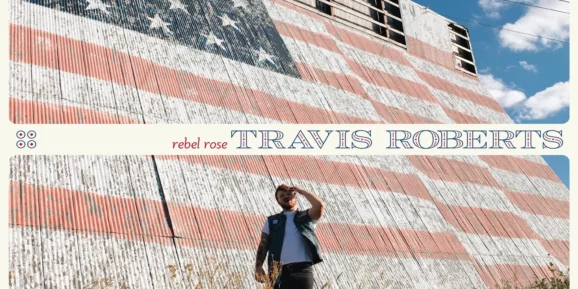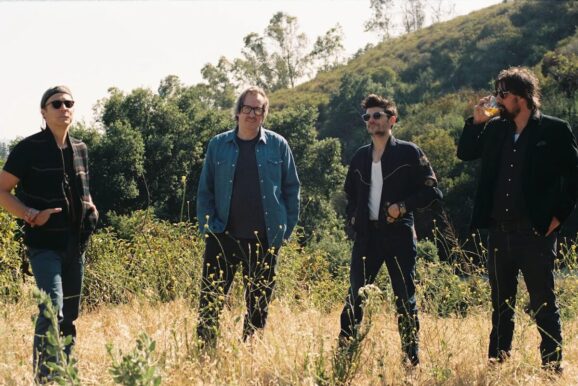With the hindsight of five and a half decades, Creedence Clearwater Revival’s second album, Bayou Country, clearly represents that point where the band’s sound and style crystallized. Over roughly thirty-four minutes of playing time, the group distilled various elements of composition and musicianship, readily apparent on the quartet’s eponymous debut, then fused those components in such a way that CCR became one of, if not the most, readily recognizable bands of its time.
The feedback commencing the first track of “Born On the Bayou” belies the terse economy of titular leader John Fogerty’s no-frills arrangement and production of this first of three (!) CCR albums out in 1969 (Green River plus Willie and the Poor Boys followed before that pivotal year’s end). The blurry front cover image of the band as they play together is somewhat deceiving in that regard as well (though the nature of the photo can be read as a reflection of the quartet’s kinetics in performance).
San Francisco Bay Area natives though they were, Creedence had little in common with peers such as the Grateful Dead or Jefferson Airplane, precisely because John’s original songs for the group hewed so closely to blues, folk, and country influences (and roots rock evident in this cover of Little Richard’s “Good Golly Miss Molly”).
Likewise contrary to ‘hometown’ contemporaries such as Quicksilver Messenger Service, CCR eschewed many lengthy jams. “Graveyard Train,” mournful harmonica and all, plus “Keep On Chooglin’,” are the exceptions to that rule, timing in at 8:36 and 7:40 respectively; as exhibited on the latter track, this foursome emphasized digging into grooves rather than embarking on wide-ranging and exploratory free-form improvisation.
Still, these longer tracks serve to emphasize the purposeful, terse approach of shorter counterparts such as “Proud Mary.” Foreshadowing the band’s success over the next two years, this tune eventually became one of the group’s signature songs, the narrative as unfurled in the verses accentuated by the ‘rollin’ on the river’ refrain in combination with the propulsive rhythm.
The vivid imagery in that composition expands upon the fictional conceit outlined via the aforementioned opener of Bayou Country. Like Samuel Clemens/Mark Twain before him, John Fogerty conceived, and with Creedence Clearwater executed, a fictional mythos as true to life as any literal autobiography.
Not surprisingly, that’s in large part because, as John Fogerty elucidates in his very own book of that kind ,2015’s Fortunate Son, he assiduously labored at the craft of songwriting. Honing descriptive lyric skills like those in evidence on “Penthouse Pauper,” he then married the words to progressions and melodies that also mirrored a common sense approach, also in evidence on “Bootleg.”
Comparable to their guitarist/composer’s devotion to original songs, Creedence Clearwater Revival adopted a rigorous approach to rehearsal. As a result, all four members are fully and completely engaged in their instrumental roles; Fogerty sibling Tom’s rhythm guitar meshed with the equally insistent bass work of Stu Cook and Doug Clifford’s drumming, thereby creating an earthy, potent instrumental attack that insinuated more than it overpowered.
Such was the collective dynamic that, as John ever more sharply honed the CCR persona in work subsequent to this sophomore Fantasy Records LP, his rough vocal tone became as readily recognizable and penetrating as his often scorching but always pointed lead guitar solos. Such musicianly inclusions only added to a style as addictive as it is infectious.
It’s thus little wonder Creedence garnered fourteen consecutive ‘Top 10’ singles and five consecutive ‘Top 10’ albums. And just as much as those accessible elements of musical style, the prolific means by which the group operated helps explain how it prevailed in those two markedly different realms of media at the time of this LP’s release over a half-century ago.
Creedence Clearwater Revival distinguished itself in a number of ways during its heyday, so much so that the acrimonious discord that fractured the group in 1972 cannot diminish the singular nature of the many peak moments of its career. For all intents and purposes, the ascension began here on Bayou Country.







